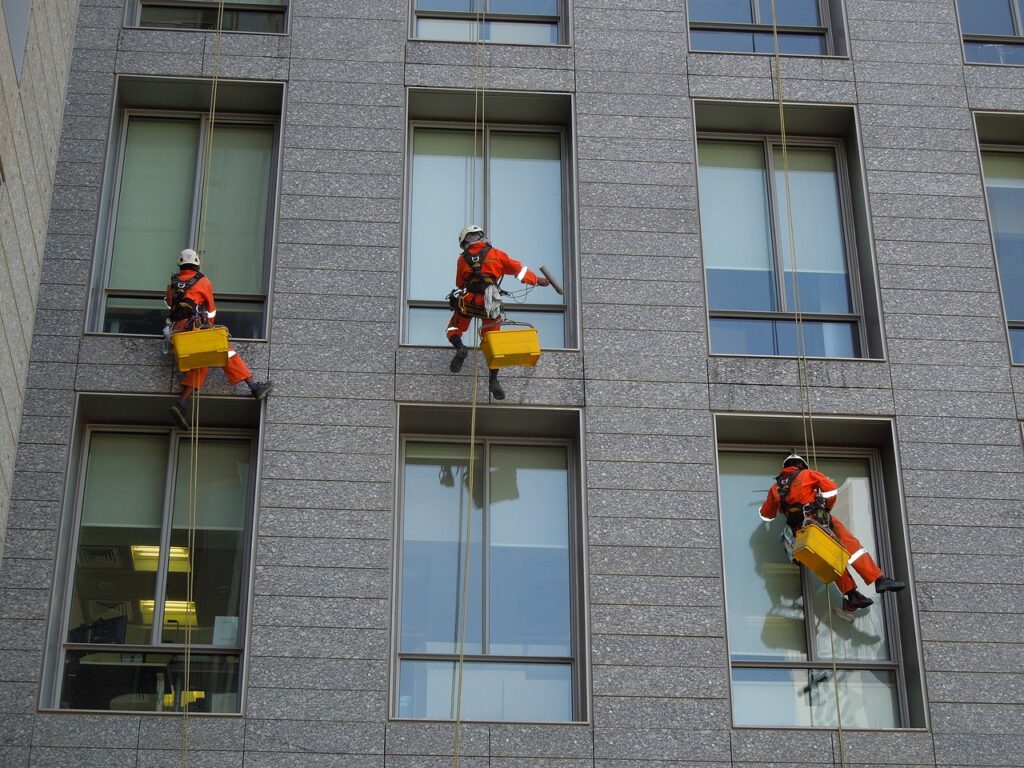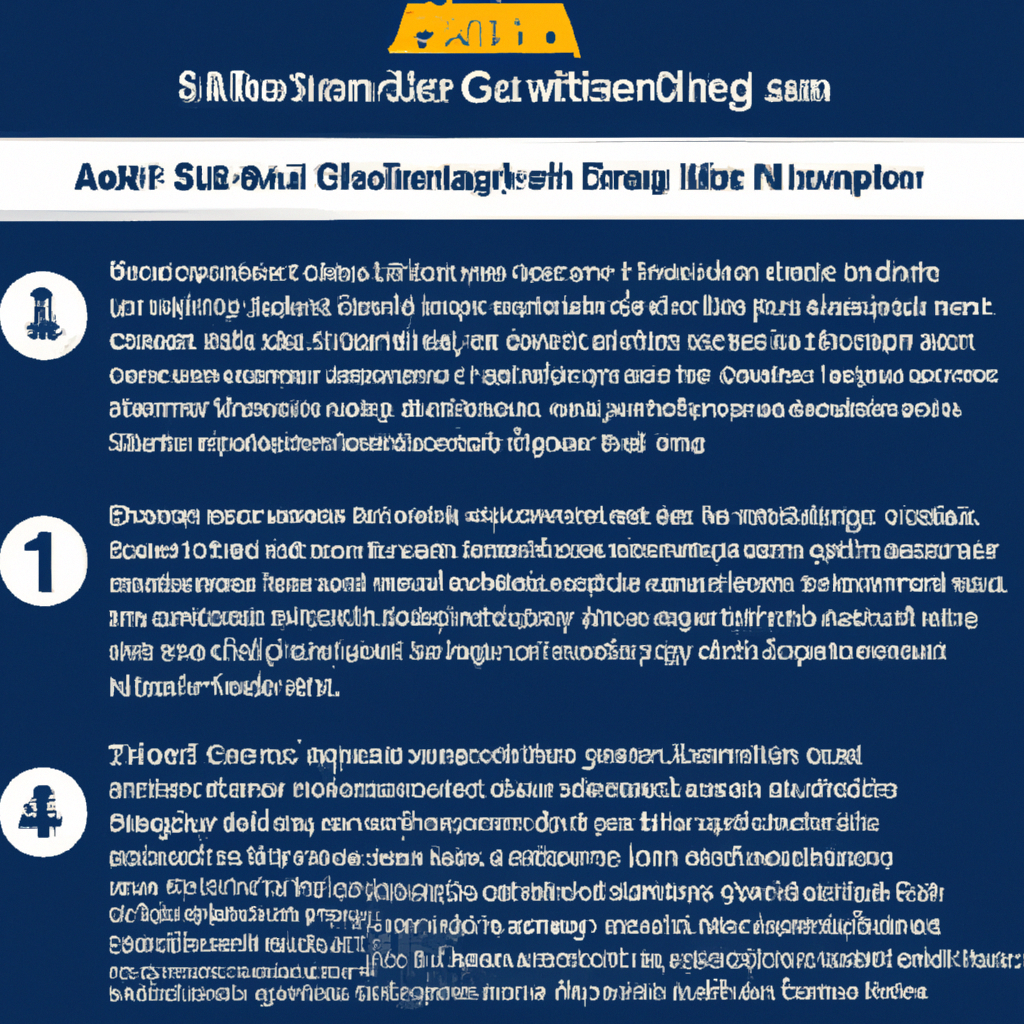Are you a resident living in an apartment with accessibility needs? If so, you may be wondering if cleaning services can adequately accommodate your specific requirements. From wheelchair ramps to wider doorways, it’s crucial for cleaning services to understand and adapt to the unique challenges that come with these types of living spaces. In this article, we will explore the options available to ensure that cleaning services can effectively meet the cleaning needs of apartments with accessibility requirements, providing a comfortable and clean environment for all residents.

This image is property of pixabay.com.
Overview
The importance of accessibility in cleaning services
Cleaning services play a crucial role in maintaining the cleanliness and hygiene of apartments. However, it is essential to recognize that not all apartments have the same accessibility needs. Many individuals with disabilities or mobility challenges may require specific accommodations to ensure that cleaning services meet their unique requirements. By prioritizing accessibility in cleaning services, we can create inclusive and welcoming environments for all residents.
Defining accessibility needs in apartments
Accessibility needs in apartments can vary significantly depending on the specific disabilities and challenges faced by residents. These needs can be categorized into physical disabilities and mobility challenges, sensory impairments and communication barriers, and cognitive and neurodevelopmental disabilities. By understanding these needs, cleaning services can adapt their approach to ensure that every apartment is cleaned effectively and efficiently.
Understanding Accessibility Needs in Apartments
Physical disabilities and mobility challenges
Individuals with physical disabilities and mobility challenges may require specific accommodations to navigate their apartment and access necessary amenities. Cleaning services need to address challenges such as maneuvering tight spaces, narrow doorways, and stairs. Adapting cleaning equipment and techniques can make it easier for residents to move around freely while ensuring a thorough cleaning experience.
Sensory impairments and communication barriers
For individuals with sensory impairments, such as blindness or deafness, effective communication and understanding are paramount. Cleaning services should be equipped with techniques to efficiently communicate with residents who have communication barriers. Additionally, cleaning products should not contain strong odors or allergens that may trigger sensitivities. By addressing these concerns, cleaning services can ensure a comfortable and inclusive experience for all residents.
Cognitive and neurodevelopmental disabilities
Cognitive and neurodevelopmental disabilities, such as autism or dementia, require additional considerations in cleaning services. Residents with these disabilities may have particular sensitivities to certain textures or visual stimuli. Cleaning professionals should be trained to understand and accommodate these sensitivities to create a safe and comfortable environment for residents. Additionally, incorporating visual cues and labels can help individuals with cognitive disabilities navigate their space and maintain independence.

Challenges Faced by Cleaning Services
Navigating tight spaces and narrow doorways
One of the primary challenges cleaning services face when accommodating apartments with accessibility needs is navigating tight spaces and narrow doorways. Traditional cleaning equipment may be too bulky or cumbersome to maneuver effectively in small areas. To overcome this challenge, cleaning professionals should be trained in using compact and versatile cleaning tools that can fit into tight spaces, ensuring thorough cleaning in every corner of the apartment.
Handling specialized equipment and technologies
Some apartments may have specialized equipment or technologies that require extra care during the cleaning process. For example, apartments with medical equipment or assistive devices may need regular cleaning while safeguarding the delicate nature of these devices. Cleaning services should be familiar with the proper handling and cleaning procedures to ensure the safety and longevity of these specialized equipment.
Addressing specific cleaning requirements
Different accessibility needs may require specific cleaning requirements. For instance, individuals with allergies or respiratory conditions may need hypoallergenic cleaning products or thorough dusting. Cleaning services should be flexible and attentive to these specific requirements to meet the unique needs of each resident. By addressing these requirements, cleaning services can create a clean and healthy living environment for all apartment residents.
Adapting Cleaning Services for Accessibility
Training and education for cleaning professionals
To ensure that cleaning services are accessible to apartments with specific needs, it is crucial to provide comprehensive training and education for cleaning professionals. This training should include understanding various disabilities, sensitivity to different cleaning requirements, and effective communication techniques. By equipping cleaning professionals with the necessary knowledge and skills, cleaning services can meet the diverse needs of residents.
Customized cleaning plans for individual needs
Every apartment with accessibility needs is unique, and a “one size fits all” approach may not be effective. Cleaning services should work closely with apartment residents to develop customized cleaning plans that address their specific needs and preferences. This may include tailoring cleaning schedules, using specific cleaning products, or adapting cleaning techniques. By personalizing cleaning services, residents can experience a more comfortable and enjoyable living environment.
Collaboration with occupational therapists and disability advocates
Collaboration with occupational therapists and disability advocates is essential for cleaning services to effectively accommodate apartments with accessibility needs. Occupational therapists can provide valuable insights into specific challenges faced by residents and suggest suitable adaptations. Disability advocates can offer guidance on inclusive practices and promote awareness of accessibility requirements. By working together, cleaning services can ensure that their efforts align with the best interests of residents with disabilities.

The Role of Technology
Smart home devices for independent cleaning
Technology plays a significant role in improving accessibility in cleaning services. Smart home devices, such as voice-activated assistants or automated vacuum cleaners, can facilitate independent cleaning for individuals with physical disabilities or mobility challenges. These devices can be programmed to perform specific cleaning tasks, ensuring that residents can maintain a clean apartment without relying on external assistance.
Automated and robotic cleaning systems
Automated and robotic cleaning systems offer a hands-off approach to cleaning, benefiting individuals with various accessibility needs. These systems can efficiently navigate different spaces, reach tight corners, and perform tasks with precision. By incorporating automated and robotic cleaning systems, cleaning services can enhance their efficiency and productivity, ultimately improving the overall quality of cleaning in apartments.
Digital platforms for customized service requests
Digital platforms provide a convenient way for apartment residents to communicate their specific accessibility needs to cleaning services. These platforms can allow residents to request customized cleaning services, provide specific instructions, or share relevant information about their disabilities. By utilizing digital platforms, cleaning services can streamline communication, ensuring that residents’ needs are understood and met efficiently.
Benefits of Accessibility-Friendly Cleaning Services
Improved quality of life for residents
By accommodating apartments with accessibility needs, cleaning services contribute to improving residents’ quality of life. A clean and well-maintained apartment creates a comfortable and enjoyable living environment for individuals with disabilities or mobility challenges. It promotes independence, enhances overall well-being, and allows residents to fully engage in their daily activities without the added stress of managing cleaning tasks.
Enhanced productivity and efficiency
Adapting cleaning services for accessibility not only benefits residents but also enhances the productivity and efficiency of cleaning professionals. With proper training and education, cleaning professionals can perform their tasks more effectively, focusing on meeting specific cleaning requirements and utilizing appropriate tools. This increased efficiency ultimately translates into better service delivery and customer satisfaction.
Positive impact on brand reputation
An accessibility-friendly approach to cleaning services can have a positive impact on a cleaning company’s brand reputation. By demonstrating a commitment to inclusivity and accommodating diverse needs, cleaning services position themselves as socially responsible organizations. This can attract a wider customer base, earn trust and loyalty from existing customers, and differentiate the company from competitors. A positive brand reputation built on accessibility can lead to long-term business success.
Case Studies
Case study 1: Adapting cleaning services for wheelchair accessibility
In one case study, a cleaning service company partnered with a local disability advocacy group to improve accessibility in apartment cleaning services. This collaboration led to the development of a training program for cleaning professionals, focusing on techniques to clean around wheelchair ramps, maneuver in compact spaces, and address specific cleaning requirements for residents using wheelchairs. The program included hands-on training and continuous support from disability advocates. As a result, residents with mobility challenges reported a significant improvement in the accessibility and quality of cleaning services in their apartments.
Case study 2: Addressing sensory impairments in cleaning processes
Another case study involved a cleaning service company working closely with individuals with sensory impairments to adapt their cleaning processes. The company introduced fragrance-free and low-odor cleaning products, ensuring that residents with sensitivities were not triggered by strong scents. Additionally, cleaning professionals underwent training in effective communication techniques for individuals with hearing or vision impairments. These adjustments created a more inclusive cleaning experience for all residents, ultimately improving their overall satisfaction.
Best Practices for Apartment Cleaning Services
Clear communication and expectation setting
Clear communication is vital in ensuring that cleaning services understand residents’ accessibility needs and expectations. Regular and open dialogue between cleaning professionals and residents helps build trust and ensures that any specific requirements or concerns are addressed. By proactively setting expectations, cleaning services can maintain a transparent and collaborative relationship with residents.
Regular evaluations and quality checks
Regular evaluations and quality checks are crucial in monitoring the effectiveness of cleaning services in accommodating accessibility needs. Cleaning companies should implement processes to assess their performance, gather feedback from residents, and make necessary adjustments. This ongoing evaluation helps identify areas for improvement and ensures that cleaning services continue to meet residents’ accessibility requirements.
Continuous learning and improvement
Cleaning services should prioritize continuous learning and improvement to stay updated with the evolving needs of residents with accessibility requirements. This can include attending training sessions, participating in workshops, and staying informed about advancements in accessible cleaning technologies. By embracing a culture of improvement, cleaning services can adapt their practices and provide the best possible service to residents.
Legal and Ethical Considerations
Compliance with accessibility laws and regulations
Cleaning services need to ensure compliance with accessibility laws and regulations in their respective jurisdictions. By adhering to applicable laws, such as the Americans with Disabilities Act (ADA) in the United States, cleaning services demonstrate a commitment to upholding the rights of individuals with disabilities. Compliance includes providing reasonable accommodations, ensuring equal access to cleaning services, and continuously improving accessibility measures.
Respecting privacy and confidentiality
Respecting privacy and confidentiality is paramount in delivering accessible cleaning services. Cleaning professionals should be trained to handle residents’ personal information and belongings with care, ensuring that their privacy is protected. This may include implementing secure data management practices, obtaining necessary consent, and maintaining confidentiality agreements.
Promoting inclusivity and diversity
Cleaning services should promote inclusivity and diversity in every aspect of their operations. This includes actively recruiting and training cleaning professionals from diverse backgrounds, ensuring that the workforce reflects the communities they serve. By fostering an inclusive environment, cleaning services can gain valuable insights, foster empathy, and enhance their ability to accommodate residents with various accessibility needs.
Conclusion
Improving access and convenience through adaptable cleaning services
Cleaning services have a crucial role to play in accommodating apartments with accessibility needs. By understanding and addressing the specific requirements of individuals with disabilities or mobility challenges, cleaning services contribute to creating inclusive apartment environments. By adapting cleaning techniques, utilizing technology, and collaborating with occupational therapists and disability advocates, cleaning services can deliver personalized, efficient, and accessible cleaning services to enhance the quality of life for all apartment residents.
Creating inclusive and welcoming apartment environments
When cleaning services prioritize accessibility, they contribute to the creation of inclusive and welcoming apartment environments. Through comprehensive training, customized cleaning plans, and the use of technology, cleaning services can ensure that residents with diverse accessibility needs are able to enjoy clean and comfortable living spaces. By meeting legal and ethical obligations, promoting inclusivity and diversity, and continuously striving for improvement, cleaning services can make a positive impact and contribute to the overall well-being of apartment residents.
